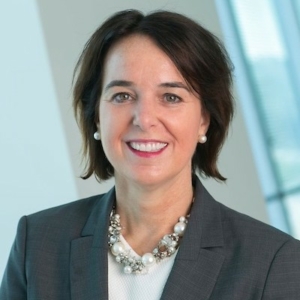Field Medical Stakeholders: Partnering for Today and Tomorrow (Episode 1 — Global Communications)
Medical Affairs thought leaders discuss the function, activities and opportunities for compliant collaboration with key internal partners.
Medical Affairs thought leaders discuss the function, activities and opportunities for compliant collaboration with key internal partners.
Q&A with Medical Affairs thought leaders describing changes in Digital and Field Medical during the pandemic and beyond
This webinar describes the NeuroLeadership Institute’s SCARF model (Status, Certainty, Autonomy, Relatedness, Fairness) and its application to the practice of Medical Affairs
Nothing could stand between Joseph Eid and his dream of becoming a doctor—not even gunfire.
Attending medical school in Lebanon at the height of the country’s lengthy civil war was a risk, but Joseph wanted to complete his studies in his home country. He vividly recalls a period when the war shut down the school and he traveled to the U.S. to spend the time off with family. It was a prudent plan, until a classmate contacted Joseph to let him know classes were starting again and he had to be back for a test on Monday. It was Thursday.
At the time, Lebanon was under military blockade, so he couldn’t fly back to school directly. Instead, he flew to Athens, then Cypress, then bought a ticket for an overnight speedboat to the Lebanese coast.
The boat left at 2 a.m. Sunday night. Just as Lebanon appeared on the horizon, the captain shut off the boat’s lights and told everyone to hit the deck. Then the bombing started. The passengers could hear splashes as the bombs and rockets exploded around the speedboat. Somehow, the boat survived the assault and so did Joseph.
He arrived in Lebanon at 4 a.m.—just four hours before his exam.
 Joseph Eid was born in the late sixties, the youngest of four children. At the time, Lebanon was a peaceful and prosperous country—but that was changing. Shortly after he was born, the Six Day War erupted, and a full-blown civil war followed a few years later.
Joseph Eid was born in the late sixties, the youngest of four children. At the time, Lebanon was a peaceful and prosperous country—but that was changing. Shortly after he was born, the Six Day War erupted, and a full-blown civil war followed a few years later.
Growing up in a war zone was challenging, to say the least. Going to school was a risk every day, as militant groups often targeted schools. Over the course of the war, his family lost their home to the bombings as well as countless friends and family members.
Joseph’s father was in the army’s mechanized division and accountable for material procurement. After visiting multiple U.S. army installations to procure equipment for the Lebanese army, it became his mission to bring his family to the US to provide them a safer future.
From a young age, both parents taught Joseph and his siblings dedication, discipline, and commitment to education. Joseph recalls a year when he was eight years old that schools were shut down due to the war. When school was back in session, he had to complete two grades in one year to make up for lost time. A couple of years later, after he was awarded scholarships for his academic performance, the principle told him there was no need to take a final exam. Joseph’s parents sent him back to school to write the test anyway. They told him he shouldn’t be treated any differently from other students.
By the time Joseph started medical school, most of his family was living in the US. But Joseph chose to finish his schooling by splitting his time between Lebanon and France when the war situation got worse.
It’s no surprise that Joseph brought that same fearlessness and gritted determination to his medical career.
Joseph took his tests in the US while still in medical school in Lebanon. After receiving his diploma, he completed his residency and fellowship in New York and New Jersey respectively. During the fellowship, he quickly rose in the ranks and was recruited to the faculty before graduating.
At Rutgers, Joseph was interested in more than just advancing his career—he wanted to solve problems and save lives. When he discovered that many sickle cell patients did well under pediatric care but struggled when they reached adulthood, he decided to do what he could to help. He applied to research grants, but after his applications were repeatedly rejected, he opted to open a clinic to help patients instead. He took training on sickle cell treatment and brought back what he learned to the clinic.
It was an extraordinary step that was life-changing for patients—and for Joseph. He proudly shares that most of his patients were able to go back to school and work because of the treatment and care the clinic provided.

Joseph Eid with his young daughter
But Joseph was a victim of his own success. He kept taking on more responsibilities, to the point where he was on call six months of the year. Now a newlywed with a young daughter, he recognized that it might be time to consider a career change so he could spend more time with his family.
In 2004, he decided to move out of academia and into the world of pharma. It was tough to leave, but he established an arrangement that would allow him to still see patients on a part-time, volunteer basis. He felt it was his duty to continue to care for his patients even after he left academia.
What drew Joseph to pharma was the rigor and scale of the work, which was so much greater than what he could hope to achieve in academia. Still, his experience in front-line medical care had ingrained a profound commitment to putting patients first.
“I knew that to deliver in pharma, I had to have the patient in focus,” he says. “That mindset stays with me today. In every meeting, I bring it back to the patient.”
Joseph cut his teeth in pharma at Roche, before moving on to Merck in 2009 as Executive Clinical Director. At Merck, his focus was late development, when the drugs were in phase 1-3 clinical stage. It was as close as he could get to seeing the science reach patients—exactly where he wanted to be.
In 2011, he took on a new role as senior project manager, where he came up with unconventional strategies and an ambitious vision for an anti-PD-1 antibody which revolutionized cancer treatment. After taking on a new role, Joseph’s leadership resulted in a tremendous increase in the size and importance of the Oncology Medical Affairs department within the organization. From 2014 to 2017, it grew from just three members to over 400.
Before long, word spread of his success and he was recruited by BMS to head up their entire Medical Affairs department.

Joseph Eid with his parents
In the first weeks at BMS, he spent his time listening and asking questions. He quickly realized the teams had their priorities confused. They were focusing too much on to do lists and not enough on their purpose.
To inspire the department, Joseph encouraged the teams to share their triumphs with each other. He asked each team to create posters illustrating their work, then he put them on stage behind him at his first town hall. The atmosphere changed immediately. Once they were given a voice and a chance to share their good work, the department was reenergized.
In recognition of the growing importance of medical, Joseph was asked to join the CEO team at BMS. Now, his ongoing role is to continue to improve the team’s engagement. As he leads the organization through the pandemic, patient care continues to be Joseph’s north star.
He believes that the key to success is reminding all 2,200 team members of the purpose of their work.
“People have to have something meaningful they are working toward,” he says.
Here are his top thoughts on leading truly purpose-driven teams.
For Joseph, the key to effective leadership is to remind team members of the remarkable impacts of their work by sharing patient stories and testimonials. Seeing how their drugs provide hope for people who are out of options has a tremendous effect on everyone, from executives in the c-suite to reps carrying the bag.
It is easy to forget that the decisions pharma people make affect the day-to-day lives of patients. Joseph recalls working with a team to write a protocol and becoming frustrated because it had so many “bells and whistles.”
“If you were a patient would you be able to do all that?” Joseph asked the team.
It was exactly the reminder they needed. The team set to work simplifying the protocol to ensure it was practical and easy to follow.
Over the years, Joseph and his teams adopted countless practices that go against the grain. They followed patient blogs to gain insights into what was on their customers’ minds. They engaged with patient groups and physicians. In trials, they often amended an ongoing phase 1 with more patients and indications to accelerate the clinical development rather than add new trials.
His approach is often unconventional, but throughout his career, he has learned that doing things differently pays off.
With COVID-19 transforming the way people everywhere live and work, there is no better time for new approaches. Daunting as it is, Joseph feels prepared to take on challenges resulting from the pandemic.
“Our mission in life is to make our work matter,” he says. “Everything we do touches patients.”
This article is graciously contributed by Excellerate: Patient-Focused Engagement for Pharma.
Cerise James, MD, moderates this podcast in which Neil Belson, JD, discusses Real World Evidence and its impact to the biopharmaceutical industry.
This Medical Affairs Professional Society (MAPS) podcast features medical affairs thought leaders offering insights into the Medical Affairs strategic planning process
This special 75-minute MAPS Global Town Hall focuses on the challenges that are arising from the global Covid-19 pandemic and the emerging opportunity for Medical Affairs to provide strategic leadership.

Murali Gopal, MD, Vice President | Global Medical Department at Mallinckrodt
Murali Gopal, MD, remembers being a young clinician in the bygone era of giveaways during conference meetings when he would walk by pharma booths and pick up a water bottle or a tie or whatever they may be giving away. Would he ever wear the tie or use the water bottle? Probably not. But it cost him nothing and so why not? Now Murali compares this might-as-well approach to the biopharmaceutical industry’s traditional (and increasingly outdated) model of brand planning. As Vice President of the Global Medical Department at Mallinckrodt Pharmaceuticals, he is helping his organization evolve into a future that includes the contributions of science and business to attain the goal of innovation. Here the Medical Affairs Professional Society (MAPS) talks with Murali about the strategy he uses to guide this change – Integrated Brand Planning – which he not only credits with bridging the gap between science and business in biopharmaceutical organizations, but sees as a philosophy that has led to his personal development as a leader and decision-maker.
MAPS: Okay, you have to start by telling us how brand planning is like stocking up on conference giveaways.
Murali: Think about what happens when Medical Affairs comes over and says we can generate X, Y and Z data for an asset – if you’re a Commercial person and you’re trying to maximize the opportunity of the molecule, and have no financial downside or obligation…why wouldn’t you take all options? It’s the same mentality as conference swag: If you can get something for nothing, you do it. That may have worked well without today’s challenges. But now companies that still use this model place themselves at a disadvantage.
MAPS: You’re saying this model of saying yes to all possibilities for a new drug leads to inefficiencies?
Murali: Yes, I am saying that, and that it also leads to increased costs and the need for increased resources. At a previous position, we ended up with 7,000 different promotional materials for one molecule in one year. Some were used once and some just sat in warehouses. A handful of them would be the key materials that were used over and over. It was as if we were creating things for the sake of creating things and not focusing on what the external stakeholder may have felt was most compelling or intriguing. Another example can be that perhaps the organization may determine they need some data without fully understanding that it may take five years to conclude a particular study, or may cost, say, $3 million dollars.
MAPS: And how is Integrated Brand Planning different?
Murali: With Integrated Brand Planning, or what some organizations call the General Manager model, the GM becomes responsible for the profit and loss of a molecule. What this means is that everything becomes visible. Commercial, safety, R&D all becomes visible, because they’re all centered around some level of cost. It forces the organization to align on their priorities and to create targeted strategies.
MAPS: It sounds like you’re talking about a more integrated flow of information between science and business during brand planning?
Murali: Traditionally the separation between science and business was intentional. Many scientists felt, and some may still feel, that science and business need to be separated and if Medical Affairs or Commercial has input to science, it takes away some of the scientific credibility. I like business but I’m a scientist at heart – I want to be measured against the science we engage in, and fortunately the GM model allows us to do both so that I can continue to grow my business acumen as well.
MAPS: What do you mean?
Murali: Let’s say our end goal is innovation – we live longer today because innovation helped us learn to deal with illnesses that would have killed us in our 30s and 40s. And look at the effect of the cholesterol medicine race in the cardiovascular space, heart transplants, etc. or the vaccine industry in general. The biopharmaceutical industry has always struggled to articulate the impact of innovation on society. But combining the business impact and scientific development aspects together, we can now measure and even predict how a therapy is going to provide value, as well as, to understand its economic impact so that we can make better decisions.
MAPS: You’re saying business has a role in innovation?
Murali: Certainly. At a previous position, we hired a top scientist in their field to work with a new molecule. He had great relationships, knew the unmet need, knew what the molecule could do, but he didn’t take into account what other companies were doing, or the needs of payor organizations, or the high level of focus on pricing at that time. When we got ready to introduce the molecule, the potential price and utilization scared the payors – they said it was going to break the healthcare system and that we would need to somehow restrict who is eligible for the therapy, and if we couldn’t do that, possibly no one would get it. Our internal leader couldn’t accept these business realities and the drug was by many measures unsuccessfully launched. For me, that was a very poignant experience. The fact is, you need relationships with scientific leaders, but to run a therapeutic area, you need just as much acumen on the landscape and business side to marry with the scientific aspects to be successful.
MAPS: This sounds like a cautionary tale of science overbalancing business, but of course we have cautionary tales in which business overbalances science as well.
Murali: I believe there are companies out there increasing profitability and cost because they can, but there are also companies trying to do the right thing, and it all gets lumped together. Integrated Brand Planning creates checks and balances.
MAPS: Oh, interesting! And how is that?
Murali: It’s about collaboration at the stage of annual planning. Instead of Commercial proposing studies to R&D, or R&D proposing studies to Commercial, with Integrated Brand Planning, it’s a collaborative, open discussion from the start. Scientists don’t need to also be MBAs and Commercial doesn’t need to hold PhDs, but the dialogue helps scientists elevate their business acumen, and Commercial elevate their scientific acumen. You need the perspective of external stakeholders as well. Most companies will put the patient or a disease at the center of what they do, then you have your organization or company’s resources sitting in the next circle around this center, but there’s an external circle as well that includes: advocacy groups for that therapeutic area, politicians, KOLs in academia, clinicians, etc. This brings the awareness and impact of patient journey and access journey into the planning process.
MAPS: It sounds challenging to help organizations transition from the traditional, siloed way of doing things into this new model of collaboration. What do you do to help generate this?
Murali: Three things. First, I’m trying to educate the scientific organization this can work and not to be afraid, but rather to embrace it. Second, I’m trying to explain what good actually looks like by walking through my own process of evolution from previous experiences at other companies – maybe by seeing how it’s worked elsewhere, we can skip some of the painful learnings. Third, I try to lead by example by sitting in wherever I can as a leader for the Medical organization.
MAPS: With collaboration comes complexity…
Murali: These actions have helped me develop not just as a better leader, but as a better individual. Balancing business and science in this collaborative process of brand planning helps me to not look at things as only black and white. It affects how I approach complex challenges. Sometimes in a discussion, you find out how complex something is and it surprises you through all of the aspects that may need to be considered and planned for. That’s fun for me. How we work together to solve complex problems is fundamentally interesting to me. And when you’re constantly looking at all these variables to make decisions, you get better at it, not just with regard to business decisions, but life decisions as well. When there are things that are hard to pick between, you can use the same mentality to make a well-rounded decision. It might sound strange, but after engaging and leading in this process for so many years, I feel like I ruminate on decisions a lot less, and that I am more secure in my decision-making ability. Don’t get me wrong, it takes effort. You can go through the motions and not get anything out of it. But I dug into it. I really wanted to unpack how far we could take commercial and scientific collaboration and I think it’s facilitated my growth as a leader and attaining this level in my career and in my life.
It’s no secret that major forces have pushed the pharmaceutical industry to think differently about how it operates and how it can deliver greater value to society. The good news is that we’re seeing more connected, more agile and more outcomes-focused organizations arise from the disruption.
R&D teams have increasingly broken free from traditional scientific silos through increased internal collaboration and external partnerships with biotech and academia. They have embraced transformative science and technological advances and we are starting to see a new generation of medicines forged by our enhanced ability to capture, interpret and apply data.
Our engagement models have also adapted to changing stakeholder needs. More specialty products with more complex data mean that our clinical and access stakeholders are demanding deeper scientific exchanges to understand the patient impact and value to society.
Like many pharma companies, the role of Medical Affairs at Astellas has transformed in recent years, from a support function to a strategic organization to internal and external stakeholders.
Today, Medical Affairs is comprised of the most important and valued capabilities in the business, playing the role of key connector between internal pharma and external stakeholders.
We are driving scientific exchange and evidence generation with an ever-expanding external stakeholder community of healthcare professionals, scientific experts, health authority bodies, payers and patients.
Our role is not just limited to knowing what these stakeholders want and need. We’re fulfilling information needs through data-generation (clinical trials and real-world data analyses), data sharing through publications, medical information and scientific exchange, pinpointing the investments and activities that will drive the biggest impact for each of these groups. The result, ensuring the safety, efficacy, value and real-world utilization of our therapies are fully understood.
As Medical Affairs integrates its wealth of external insights into a consolidated and aligned strategy to guide its own global activities, it also needs to align with Commercial and R&D colleagues. Through governance and operational excellence, Medical Affairs ensures information needs and data are shared across organizations, as and when needed, to enhance the effectiveness and impact of all respective groups.
As our operating environment has changed, Medical Affairs has become a more business-savvy, scientifically influential, connected and agile function. While we’re making great progress, companies like Astellas know that the disruption won’t stop.
New challenges lie ahead, such as our ability to address wider societal issues and to create value for a variety of stakeholders that is wider than ever before. Another key challenge for us will be the use of artificial intelligence to generate data from combined big data sources, such as clinical health records, real-world data and the variety of ‘omics’ data sets. This information will need to be delivered in an increasingly digitally-savvy way, for example via interactive medical information websites and other digital channels.
We also know that downward pricing pressures are unlikely to go away. We will need to demonstrate how innovations create value to a wider variety of stakeholders than ever before. So, every commercial decision will have greater consequences.
With this mind, I believe that Medical Affairs professionals must continue to build on the range of capabilities that enable them to act as orchestrators of company strategy with R&D and Commercial functions. Central to this is effective leadership. Medical Affairs leaders need to be ready to interact with the C-Suite and inform corporate strategies because it is helping companies to make smarter decisions and focus performance measures on patient-centric outcomes. And that’s value creation that makes a real difference.

8/18/16 10:06:55 AM — Astellas portrait session. Charlotte Kremer © Todd Rosenberg Photography 2016
Charlotte Kremer, M.D.
EVP, Head of Medical Affairs,
Astellas Pharma Inc.
MAPS in conversation with Robert Groebel, VP Global Strategy, MONOCL, and Danie du Plessis, VP Medical Affaris, Kyowa Kirin
602 Park Point Drive, Suite 225, Golden, CO 80401 – +1 303.495.2073
© 2025 Medical Affairs Professional Society (MAPS). All Rights Reserved Worldwide.
